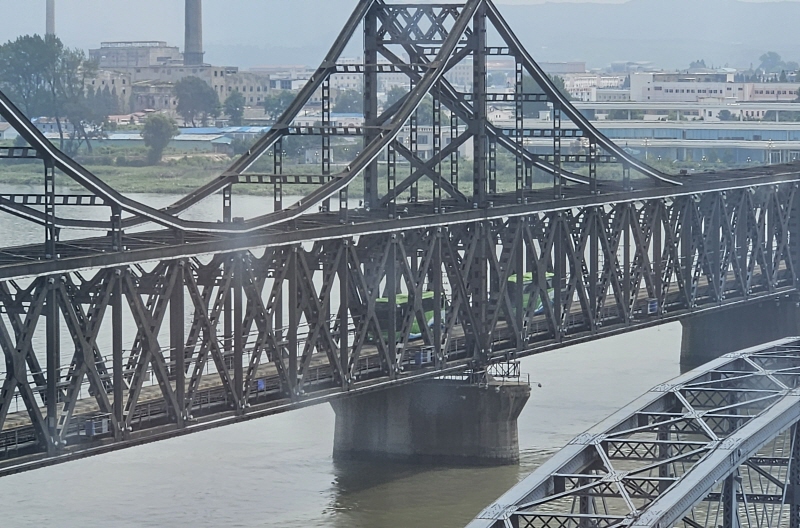North Korean leader Kim Jong Un and Russian President Vladimir Putin are advancing plans for a road bridge over the Tumen River, a project agreed upon during their June 2023 summit in Pyongyang. The bridge, which aims to strengthen bilateral cooperation, is scheduled for completion by the end of 2026, according to recent reports.
The U.S.-based Radio Free Asia (RFA), citing Russia’s Interfax news agency, reported on February 4 that the Russian government has signed a contract with TonnelYuzhStroy LLC, a domestic construction company, to design and build the bridge over the Tumen River in Primorsky Krai, which borders North Korea.
According to the contract, the bridge will span 800 meters in length and 10 meters in width, featuring two lanes for vehicle traffic. It will be built 415 meters downstream from the existing Tumen River railway bridge. The project is expected to be completed by December 2026.

The Kim-Putin summit in June 2023 saw the signing of a Comprehensive Strategic Partnership Treaty, which included an agreement on the construction of the Tumen River bridge. Analysts believe this project is part of Russia’s compensation for North Korea’s military support in the ongoing war in Ukraine.
“Building a new bridge will allow Russia to expand direct trade with North Korea. There is no doubt that this is, at least in part, a reward for North Korea’s arms supplies to Russia,” said Bruce Bennett, a senior researcher at the RAND Corporation, in an interview with RFA.
Once completed, the bridge is expected to significantly enhance land-based logistics between the two nations, enabling faster transportation of goods and even passenger travel. Experts suggest that in addition to economic and military cooperation, the infrastructure could boost North Korea’s tourism sector, a priority for Kim Jong-un.
At present, trade and exchanges between North Korea and Russia rely heavily on rail and air transport.
Rail Transport: The 231-kilometer rail line between Hasan (Russia) and Baranovsky—a key trade route—is heavily outdated, causing significant delays in cargo transportation.
Air Transport: North Korea’s Koryo Air operates a limited number of aging aircraft, further restricting travel and trade.
Given these challenges, experts predict that the completion of the Tumen River bridge will greatly improve logistics infrastructure between the two countries.
“With the bridge in place, a large number of vehicles can be deployed, allowing for a rapid expansion of transportation infrastructure,” said Oh Kyung-seob, a senior researcher at the Korea Institute for National Unification.
“This could serve as a catalyst for even deeper military and economic cooperation between North Korea and Russia.”
North Korea and Russia have been actively strengthening their exchanges across various sectors in early 2024.
According to North Korea’s Korean Central News Agency (KCNA), a North Korean civil aviation delegation, led by Im Kwang-woong, head of the General Administration of Civil Aviation, departed Pyongyang on February 3 to attend the “Civil Aviation Infrastructure Exhibition 2025” in Russia.
Additionally, delegations from Kim Il Sung University and Kim Chaek University of Technology visited Russia on January 24, further highlighting the growing cooperation between the two nations.
BY YOUNGGYO CHUNG, YOUNGNAM KIM [kim.youngnam@koreadaily.com]




